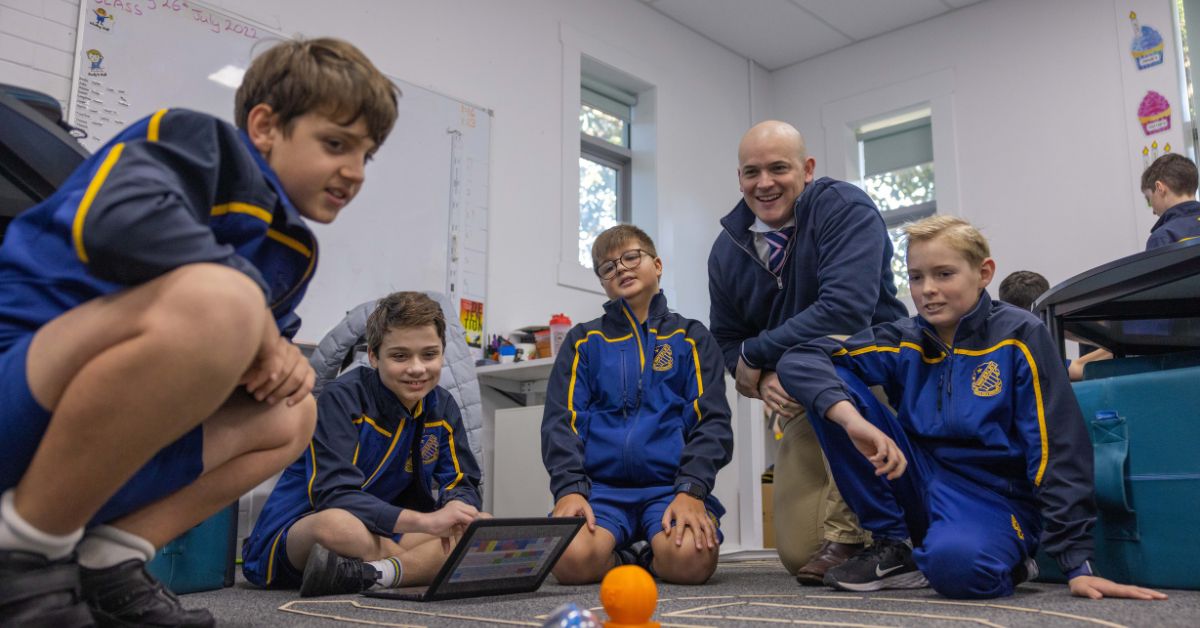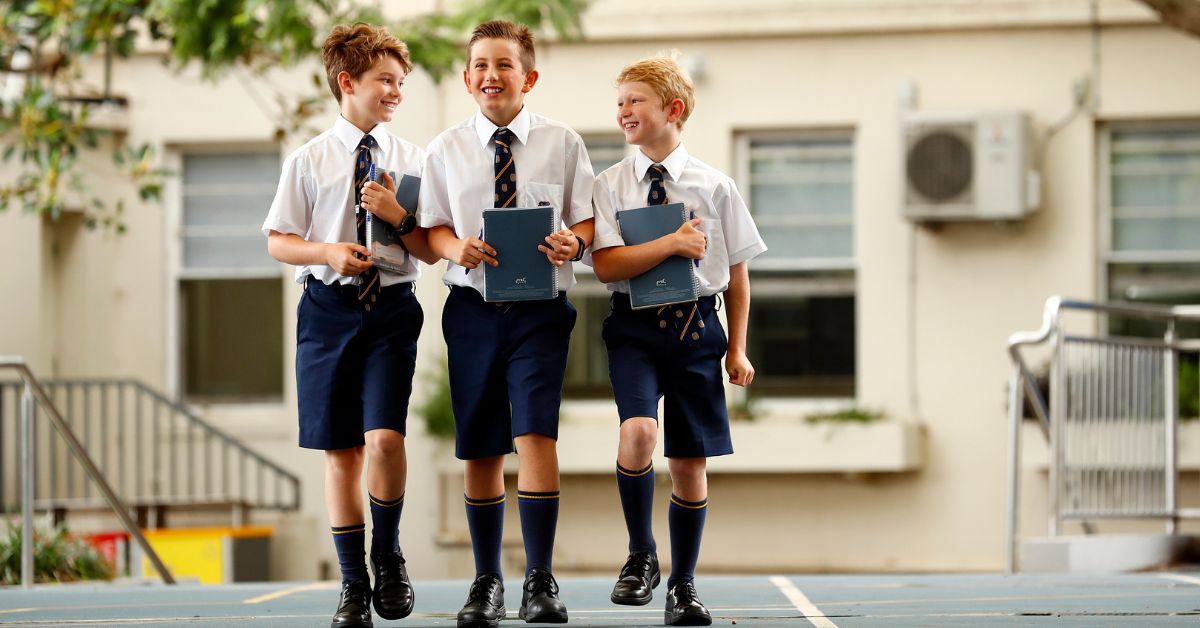Waverley College in New South Wales is one of the first schools in Australia to train all their staff in Youth Mental Health First Aid (MHFA).
‘We saw a need,’ said James Horrocks, Head of Student Wellbeing at Waverley College. ‘What we were noticing throughout the school is higher presentations of different mental health concerns.’
Globally, mental health for young people has been steadily declining for the past two decades. Data from the Lancet Psychiatry Commission on youth mental health published recently revealed a major surge in mental ill-health following the COVID-19 pandemic.
‘Anxiety and depression are probably the main two that we see and that’s why we’re looking into ways where we can better support our students,’ says Mr Horrocks.
In 2017, Waverley College’s wellbeing program underwent a significant transformation from a horizontal program to a vertical one, and the college actively searched for opportunities to provide greater mental health support.
One of the school’s three registered psychologists heard about Youth Mental Health First Aid training and after volunteering to attend the course, she became a Youth MHFA instructor and trained other key members of the school’s wellbeing team.
‘The feedback was really positive. The practical approach, the strategies that it provides, all of the help in identifying different things and how to deal with those was really valuable.’
The program was so well received that the decision was made to expand it to the entire school – almost 200 staff encompassing both teaching and administrative – to ensure that, no matter who or where a student is, help would always be nearby.
‘Knowing what language to use, and how to structure a conversation around mental health and mental health first aid, has given staff a lot of confidence,’ says Mr Horrocks.
‘And even if they’re not necessarily sure how to deal with a situation at a specific point in time, they know how to get in touch with someone who can provide appropriate support.’

Being trained as a Mental Health First Aider (MHFAider) has deepened my understanding of the complexities of mental health, emphasising the importance of self-care, resilience, and the value of educating young people to recognise signs of poor mental health – not only in themselves but also in those around them.’ – Mr Douglas, Teacher
Why Youth MHFAiders are vital to Waverley College’s wellbeing vision
The Lancet report has found that the biggest threat to the health, wellbeing and productivity of adolescents is mental ill-health, and highlights the need for greater community awareness, education and advocacy for youth mental health.
Waverley College is leading the way in this space, and having staff trained as MHFAiders is key to College’s ongoing work to destigmatise mental health and improve mental wellbeing for all their students.
‘Having staff who are confident to talk about mental health and support students in that space has opened up a whole world of conversations that staff would potentially have been hesitant to have before. Not through lack of wanting to, but through lack of knowing how.’
Waverley College is an all-boys school for students from years 5 to 12, and the staff are aware of the challenges surrounding young men’s mental health and wellbeing.
‘We know with boys and young men in particular, talking about mental health problems is often something that they don’t do, so we make a really strong effort in that space.’
Gendered stereotypes and societal expectations that have long told men to ‘toughen up’ and keep their emotions in check are damaging, and can play a significant role in deterring men from opening up and seeking help.
Studies show that suicide is a common cause of death in young males, indicating that urgent prevention and early intervention initiatives like MHFA in schools and communities are key to ensuring students can go on to live happy, healthy lives.
Having every staff member trained in MHFA not only breaks down stereotypes and reduces stigma, but also empowers our community to recognise early signs of poor mental health, helping to ensure that concerns are addressed before they become larger issues and creating a more understanding and responsive community.’ – Mr Douglas, Teacher

Building a brighter future: the ongoing impact of MHFAiders
Since training all staff in Youth MHFA, the college has noticed that the increased willingness of staff to engage in discussions about mental health has flowed down to the student population.
Sam Douglas, a PDHPE teacher at the school, says he is now more attuned to subtle changes in students’ behaviour. After recently noticing a disengaged student in one of his PDHPE lessons, he reached out for a mental health conversation in which the student opened up about his struggles.
‘This allowed me to speak with his Head of House and the school psychologist to implement proactive support and flag some of the issues he was facing. This structured, proactive approach is a real strength of our school. It helps to ensure that concerns are addressed before they become larger issues, creating a more understanding and responsive community,’ Mr Douglas says.
Inspired by staff MHFAiders, students are increasingly becoming passionate advocates for mental health, organising wellbeing initiatives and taking action in their own way.
In 2024, students at the College organised a wellbeing evening about mental health seeking behaviours. The information session was coordinated and hosted by the Year 12 captains. The students sent out invitations, wrote the scripts, researched the figures, and presented their findings to parents and students.
Staff at the College say that the Youth MHFA training has successfully filled a need that had been identified by the student wellbeing team.
‘Staff have been appreciative that we’ve given them training and support and guidance in that,’ says Mr Horrocks. ‘No one gets into teaching because they don’t care. They all care and they all care deeply, and they all want to help.’
The College has also undertaken training in staff wellbeing, and is working towards rolling out a new wellbeing framework and program in early 2025. Also on their roadmap is the introduction of Teen MHFA to take a whole-of-school approach, equipping students with the skills to recognise and respond to signs of mental health problems or crises in their friends and peers.

As educators who interact daily with students across various settings, we may be among the first to notice signs of mental health struggles. In today’s fast-paced world, it’s easy to overlook when someone might be struggling. Completing the course has helped me become more aware and present in my interactions with students, allowing me to better support them.’ – Mr Douglas, Teacher
How training every staff member as an MHFAider is transforming the college
Training all staff at Waverley College in YMHFA took approximately 18 months, but the outcomes speak for themselves. The College has seen a reduction in mental health stigma and increased conversations around mental health that are having wide ranging benefits to the wider school community.
Becoming MHFAiders has given staff the confidence to have knowledgeable and constructive conversations about mental health.
‘I think that training really empowered the staff, and from that, students are seeking more help and they’re more comfortable talking about their mental health,’ Mr Horrocks shares.
Read more about Waverley College’s whole-of-school approach to mental health in Mental health support must go beyond the counsellor’s office’.
To find out more about Youth Mental Health First Aid and MHFA in schools, view the pages below:
Schools who support Aboriginal and Torres Strait Islander students can learn to provide culturally informed and safe support via:



